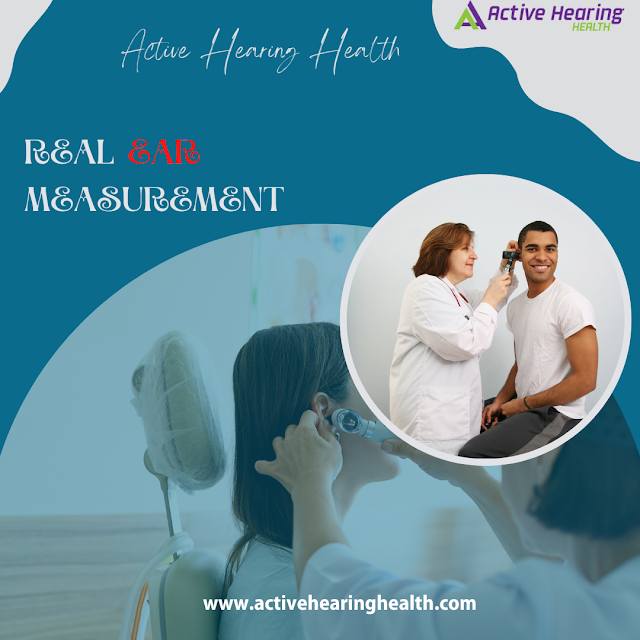Hearing Aid Specialist: What You Need To Know
As we age, it becomes more and more important that we have access to hearing aids to maintain our quality of life. After all, as people get older, their hearing starts to deteriorate as well. If you or someone you know needs a hearing aid specialist near you for any reason, then this blog is for you!
What is a hearing aid specialist?
A hearing aid specialist is a healthcare professional who specializes in the diagnosis and treatment of hearing loss. Hearing aid specialists typically have a bachelor's degree in audiology or a related field, and many also have a master's degree. They must be licensed by the state in which they practice.
Hearing aid specialists work with people of all ages, from infants to older adults. They provide comprehensive services that include hearing testing, counseling, and prescribing and fitting hearing aids. They also provide support and education to patients and their families about living with hearing loss.
How is the hearing aid specialist trained to fit hearing aids?
Hearing aid specialists near you are trained to fit hearing aids by completing a four-year degree in audiology. During their studies, they take classes on how to measure hearing loss, how to select the right hearing aid for each individual, and how to properly fit and adjust hearing aids. After graduation, they must pass a national exam before they can become licensed.
What are the different types of hearing aids?
Hearing aids come in a variety of shapes and sizes, each with its own set of features and benefits. The type of hearing aid you choose will depend on your specific hearing needs, lifestyle, and budget.
Some of the most common types of hearing aids include:
In-the-ear (ITE) hearing aids: These hearing aids fit directly into the bowl-shaped depression of your outer ear. ITE hearing aids are less visible than other types of hearing aids and can be fitted with a custom earmold to improve comfort and sound quality.
Behind-the-ear (BTE) hearing aids: BTE hearing aids rest behind your ear and connect to an earpiece that fits inside your ear canal. BTE hearing aids are larger than ITE models but offer more features and better sound quality. They’re also easier to keep clean since the electronics are housed outside of the ear canal.
In-the-canal (ITC) and completely-in-the-canal (CIC) hearing aid: ITC and CIC hearing aids are smaller than ITE or BTE models and fit snugly inside your ear canal. ITC and CIC hearing aids are less visible than other types but can be more difficult to insert and remove.
Open-fit hearing aids: Open-fit hearing aids have a small tube that goes into the ear canal, leaving the majority of the ear unobstructed.
Who is a good fit for hearing aids?
If you have difficulty hearing, your first step should be to visit a hearing healthcare professional for a comprehensive hearing evaluation. Once it has been determined that you would benefit from wearing hearing aids, the next question is: what type of hearing aid is best for you?
There are many different types and styles of hearing aids available on the market today. With so many choices, it can be overwhelming trying to decide which one is right for you. However, certain factors can help narrow down your options.
Some things to consider when choosing a hearing aid include
The severity of your hearing loss. Different types of hearing aids are better suited for different degrees of hearing loss. If you have a mild loss, you may do well with a less powerful and less expensive device. However, if your loss is more severe, you will likely need a more powerful device that can provide more amplification.
Your lifestyle and needs. Consider how active you are and what sort of activities you enjoy. Do you play sports? Do you work in a noisy environment? Are you constantly on the go? Answering these questions can help guide you toward the right type of hearing aid. For example, if you lead an active lifestyle, you may want to consider an invisible-in-the-canal (IIC) device that fits snugly inside your ear canal and is less likely to fall out during physical activity.
How long does it take for your ears to recover after wearing a hearing aid?
If you've been wearing a hearing aid for a while, you might be wondering how long it will take for your ears to recover from the experience. The good news is that, in most cases, your ears will recover quickly and easily from the use of a hearing aid. Most people don't even notice any difference in their hearing after using a hearing aid for a short period.
However, there are a few things that can impact how quickly your ears recover from wearing a hearing aid. First, if you're new to wearing a hearing aid, your brain may need some time to adjust to the new input of sound. This adjustment period is typically very short, but it can vary from person to person.
Second, the type of hearing aid you're using can also impact how quickly your ears recover. If you're using an older model or a less sophisticated hearing aid, it's possible that your ears won't recover as quickly as they would with a newer or more advanced model.
Finally, it's important to remember that everyone's ears are different and therefore they'll all recover from wearing a hearing aid at different rates. So don't be discouraged if it takes your ears a little longer to adjust than someone else's - it's completely normal!
What happens to a person's ears when they start using a hearing aid?
When a person begins using a hearing aid, their ears may feel uncomfortable or itchy at first. This is because the hearing aid is amplifying sounds that the person was not previously used to hearing. Over time, however, the person's ears will adjust to the new level of sound and will no longer feel uncomfortable. In some cases, a person may also experience tinnitus, or ringing in the ears, when they first start using a hearing aid. This is usually temporary and will go away as the person gets used to the hearing aid.
Tips for taking care of your new hearing aids
When you get your new hearing aids, you want to make sure that you take care of them so they last a long time. Here are some tips for taking care of your new hearing aids:
-Keep them clean. Hearing aids can easily get dirt and earwax build up on them, so it's important to keep them clean. Use a soft cloth to wipe them down after each use, and be sure to clean the earwax out of the casing regularly.
-Handle with care. Don't drop your hearing aids or expose them to extreme temperatures, as this can damage them.
-Store properly. When you're not using your hearing aids, store them in a dry, safe place where they won't get damaged.
-Change the batteries regularly. Most hearing aids use disposable batteries, so you'll need to change them every few days or weeks. Keep extras on hand so you never have to go without your hearing aid.


Comments
Post a Comment